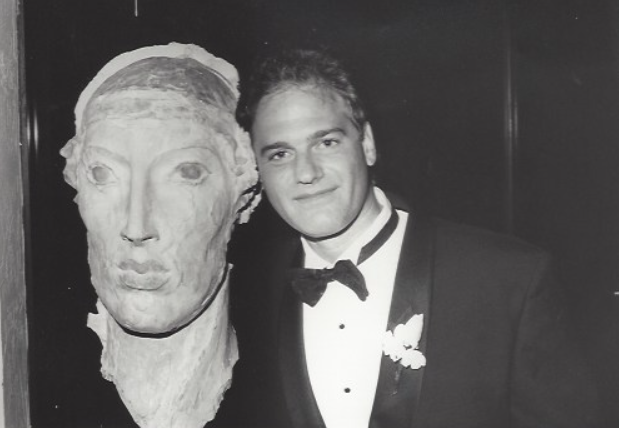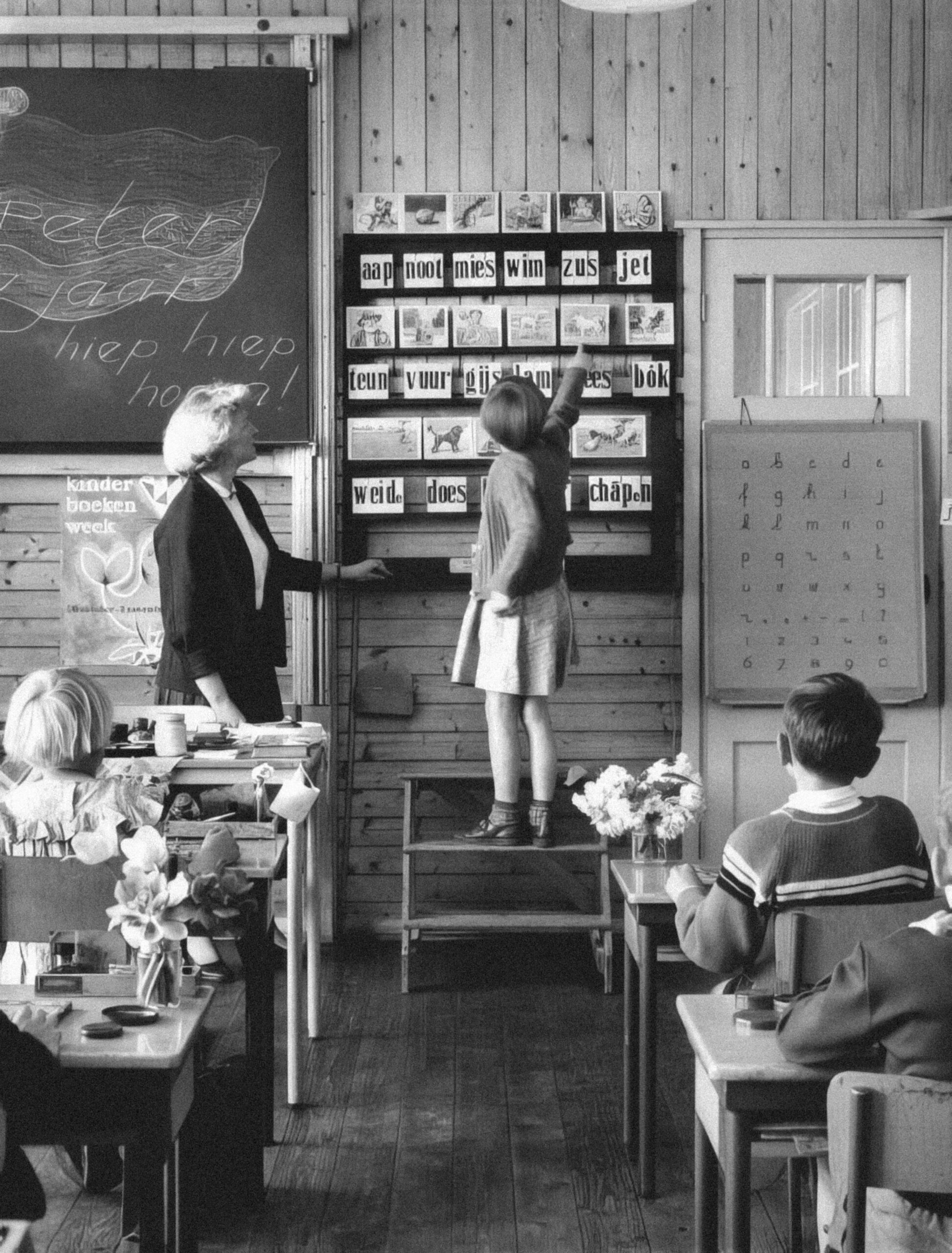
When my family gathered for the Passover Seder in 1998, I didn’t know it would be the last time I’d see my younger brother Gary alive. Fifty-one days later on the second day of the Jewish holiday Shavuot, I received a phone call at four in the morning telling me that he had died suddenly from an asthma-induced heart attack at 35 years old.
For centuries, people have been counting the Omer, which marks the 49 days between the two pilgrimage holidays of Passover and Shavuot when the Jewish people made the journey back to Jerusalem. In modern times, the counting each day of the Omer coincides with a different spiritual attribute that we are invited to cultivate and refine. Before my brother died, Shavuot—celebrating the receiving of the Torah—had long been a favorite time of year for my family. People eat cheesecake, stay up all night studying inspiring Torah texts, and have festive picnics spending time in community. In 1998, the second day of Shavuot was on May 31, which also coincided with Memorial Day. Grief always messes up my mind when the calendar approaches a holiday or special occasion. This year as the Omer clock started ticking, I began to feel a bit out of sorts and experienced free-floating irritation over things that are not actually upsetting or even worth noting. My body started sending up spontaneous flares which included tears for no apparent reason, tightly wound fury about something smaller than the smallest minutia, a crying jag from stubbing a toe, and other indignities signaling that the shit storm of grief was about to flare-up big time. I’ve come to understand that this aberrant behavior can only mean one thing: Another anniversary is lurking in the misty swamp of grief.
Recently, I actually did the math scribbling “2023 – 1998 =” to discover in shock that this year was in fact the 25th anniversary of Gary’s death. How has it been that long when I still miss him like his passing was yesterday? A Positive Psychology thought leader and lifelong optimist, I thought that perhaps this year might be different. Naturally, I knew that once I reached the other side of June 1, the trifecta of anniversaries—the second day Shavuot (May 27), Memorial Day (May 29), and May 31—would be behind me for another full year. Yet, perhaps this year could be different, I thought to myself. I was determined to try.
I bought tickets to The Fears, a wonderful off-Broadway show which my mother and I enjoyed on Wednesday night. It was exhilarating to laugh and cry at someone else’s life instead of counting down the 24 hours to the holiday when the flames of our grief would grow stronger. I was proud of my self-care tactic and the fact that my mother and I had a really good time together. The week before I realized I needed to build some additional self-care moments into the holiday weekend. So I called a couple who are dear friends and asked them to invite us for Shabbat dinner in her backyard. Life is about knowing who to call, and these close friends were delighted to host a cozy dinner. The four of us sat under a tall maple tree enveloped by good conversation and yummy food with the additional bonus that I did not have to set the table or prepare the food besides bringing a colorful salad to share and a tasty bottle of wine.
I was feeling really good about my self-care plan. Night-before-holiday self-care: check. Second-night-of-the-holiday self-care: check. Yet I still was left with the unbearable chasm of filling the first night of the holiday. I was emboldened to do something unexpected. So, I registered to attend the Tikkun Under the Stars, a beautiful study and dinner led by my rabbis on the rooftop of the synagogue. I felt confident in my fantasy that I could pull up a seat amongst fellow congregants and listen to a meaningful talk on this auspicious occasion surrounded by beautiful strands of white lights under a twinkly New York sky. Even though I don’t celebrate Christmas, I still am an absolute sucker for the ambiance of those lights. As I registered for the event, I felt determined to walk the four blocks to my synagogue where I could be held in the warmth of my community rather than opting for going under the covers.
When the night arrived, I got dressed and waited until my husband Jacob returned home from early evening prayers in synagogue so we could walk together to the event. When he arrived at the apartment, he looked at me and tenderly asked, “Hey, Lisa, do you still want to go?” I didn’t even realize it until he asked, but this was precisely the question I longed to hear. Instead of answering him, I dissolved into his arms as tears gently streamed down my face. I was relieved to put on my pajamas and crawl into bed. Within minutes, I was sleeping. I was too exhausted to take off my makeup or even brush my teeth. I’ve come to know that sometimes grief can be like that.
The next morning, I decided that a warm bath and reading in bed was the healing salve I needed. During a typical work week, I get up every morning to go to the gym early, so spending a slow, easy morning at home was just what I needed. My synagogue has a custom of holding a first day of Shavuot picnic. People arrive at the sanctuary schlepping blankets, folding chairs, and of course lots of food. There’s a levity and palpable joy in the room which is simply too jarring for me given that the occasion coincides with Gary’s death. So, once again, I decided to give myself what I needed and sat it out. I’m not anti-picnic, I just knew there would be too much distance between a cheerful, “Hey, how are you doing” and the sadness weighing on my heart during this two-day holiday.
Besides, I knew I’d need to save my strength for the second day of Shavuot on Shabbat morning. I’d be in my usual seat in the sanctuary next to my mother. Over the years I have withheld extensive tears in front of my parents, feeling that their grief was enough for them to bear and that I didn’t have to rip open their hearts, causing even more collateral damage by piling my grief on top of theirs. On that morning, I arrived 30 minutes before my mom and quietly bawled my eyes out so that, when she arrived, I was able to softly sing prayers and say the Mourner’s Kaddish alongside her.
The week before the holiday, I decided to email the Rabbis to let them know it was the 25th anniversary. I was grateful when Rabbi Felicia said a few words honoring Gary’s memory shortly after the yahrzeit prayer. This acknowledgment gave me and my mother much comfort. Jacob showed up leaving his services at the synagogue a few blocks away to make it to my shul in time for yizkor, the memorial service. I also invited my aunt and uncle to come to our home for lunch because they both loved Gary as a “chosen” son. We talked and sat on our purple couch, enjoying cheesecake together as the time passed.
Perhaps some of these experiences resonate with you if you have lost a loved one. I want you to know that grief is a long and curvy road and we never get to the final destination. Some days I can climb to the top of the mountains and feel awe, joy, and gratitude for what is and what was, while other days are a struggle. It comforts me to know I can reach inward and outward during these raw and tender moments. Just like those twinkly stars in the sky, I can always access the warmth of Gary’s unconditional love in times when I need it the most.
I’m sending you strength and love.


